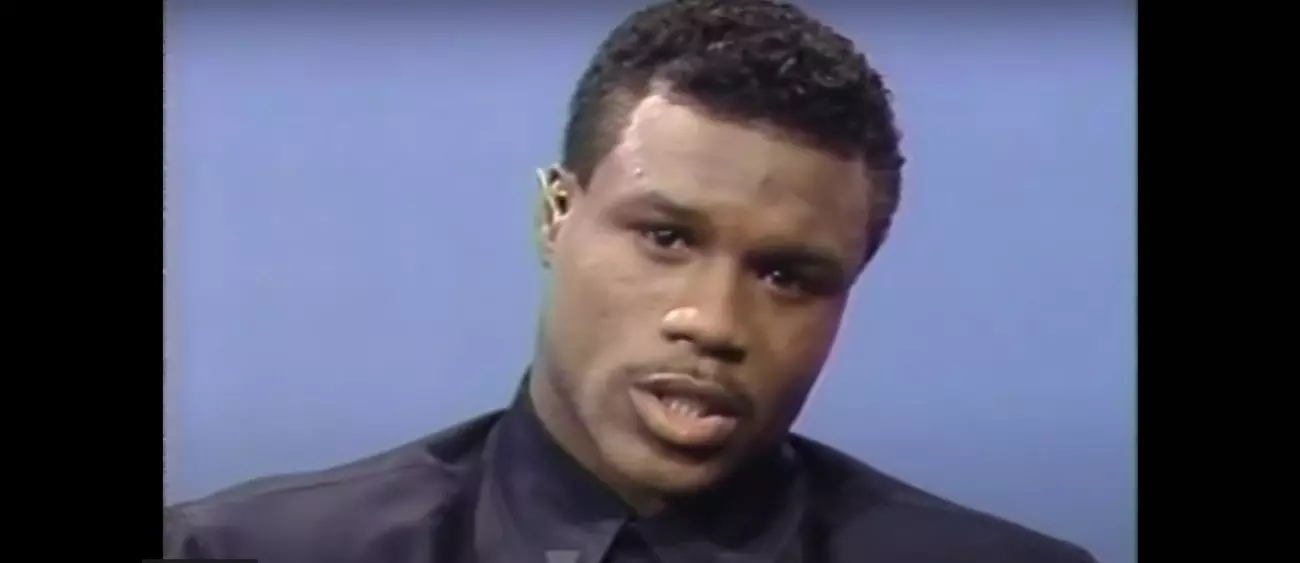Meldrick Taylor is a name that resonates in the annals of boxing history, often accompanied by phrases that echo bitterly through the years—“two seconds from greatness.” On March 17, 1990, in a bout against the legendary Julio Cesar Chavez, Taylor was on the cusp of victory, only to see it snatched away in a matter of moments. This article delves into Taylor’s storied career, the heartbreaking loss that arguably defined it, and the complex legacy left in its wake. While critics may argue that his achievements are overshadowed by that infamous defeat, a closer examination reveals that Taylor’s contributions to boxing were significant and lasting, even if they were marked by tragedy.
The fight against Chavez was not just another match for Taylor; it was the penultimate clash in his quest for recognition in a sport dominated by ferocious competitors. Taylor had already established himself as a formidable fighter with an impressive amateur record of 99-4 and an Olympic gold medal in 1984. Yet, despite his accolades, he sought a different kind of validation—one that came from proving himself in the most grueling of circumstances. The excitement of the fight was palpable, with Taylor seemingly performing a boxing masterclass in the early rounds. However, his inclination to engage in a toe-to-toe brawl was ultimately his undoing.
Determined to stand and trade punches with Chavez, a fighter known for his ferocity and resilience, Taylor entered the lion’s den. The bout was dramatic, with Taylor initially showcasing incredible speed and skill, demonstrating why he was dubbed “T.N.T.” However, as the fight progressed, his strategy morphed into a risky gamble that would yield catastrophic consequences.
In the Eye of the Storm
As the fight transitioned into its latter stages, the unforeseen circumstance loomed over Taylor—fatigue mixed with the relentless onslaught of Chavez’s punches. Despite holding a lead on the judges’ scorecards, Taylor’s penchant for trading blows with the relentless Mexican boxer proved fateful in the final moments. With just seconds left on the clock, the fateful combination of punches from Chavez left Taylor dazed and vulnerable.
The controversy surrounding the fight’s abrupt conclusion, when referee Richard Steele stepped in to stop the contest, continues to spark debate. Should Steele have allowed Taylor to continue, or was the fighter’s well-being paramount? In the chaos, Taylor’s own trainer, Lou Duva, hovered on the ring apron, creating a visual distraction that ultimately contributed to the early stoppage. One could argue that a different decision from either the referee or the trainer may have changed the trajectory of Taylor’s career entirely.
Post-Chavez, the physical and psychological toll of the fight weighed heavily on Taylor. Although he continued to compete and secured victories against credible opponents like Aaron Davis, the shadow of that single loss loomed larger than his subsequent successes. A string of defeats, many against formidable adversaries such as Terry Norris and another match against Chavez, painted a troubling picture of a once-promising talent clawing for redemption. While Taylor showcased undeniable talent, the relentless punishment he endured began to erode his capabilities inside the ring and ignited concerns regarding his long-term health.
The long-term effects of his fighting style and the brutal losses became evident. Taylor’s cognitive decline mirrored his diminishing physical prowess. As the years progressed, his speech became slurred, and the damage sustained in the ring began to manifest profoundly—signs of a fallen champion trapped in the echoes of his glory days.
Reflection: A Complex Legacy
Now aged 58, Taylor’s life serves as a cautionary tale within the sporting community. Although his record stands at a respectable 38-8-1, it’s the haunting loss to Chavez that resonates most with fans and analysts alike. Would he be remembered as one of the all-time greats if he had opted for a more strategic approach during that fateful match?
No matter the answer, there exists an undeniable truth: Meldrick Taylor was an exceptional talent and brought an electrifying presence to boxing. In retrospect, it’s crucial to acknowledge that while one fight may have cast a long shadow on his legacy, it does not eclipse the brilliance displayed throughout his career. Taylor remains a symbol of the beauty and brutality of the sport—a testament to the courage of fighters who grapple with the highs and lows of their chosen fields. As we remember Taylor, we celebrate not just the complexities of his legacy but also the indomitable spirit of a true warrior who was undeniably great, yet painfully human.


Leave a Reply